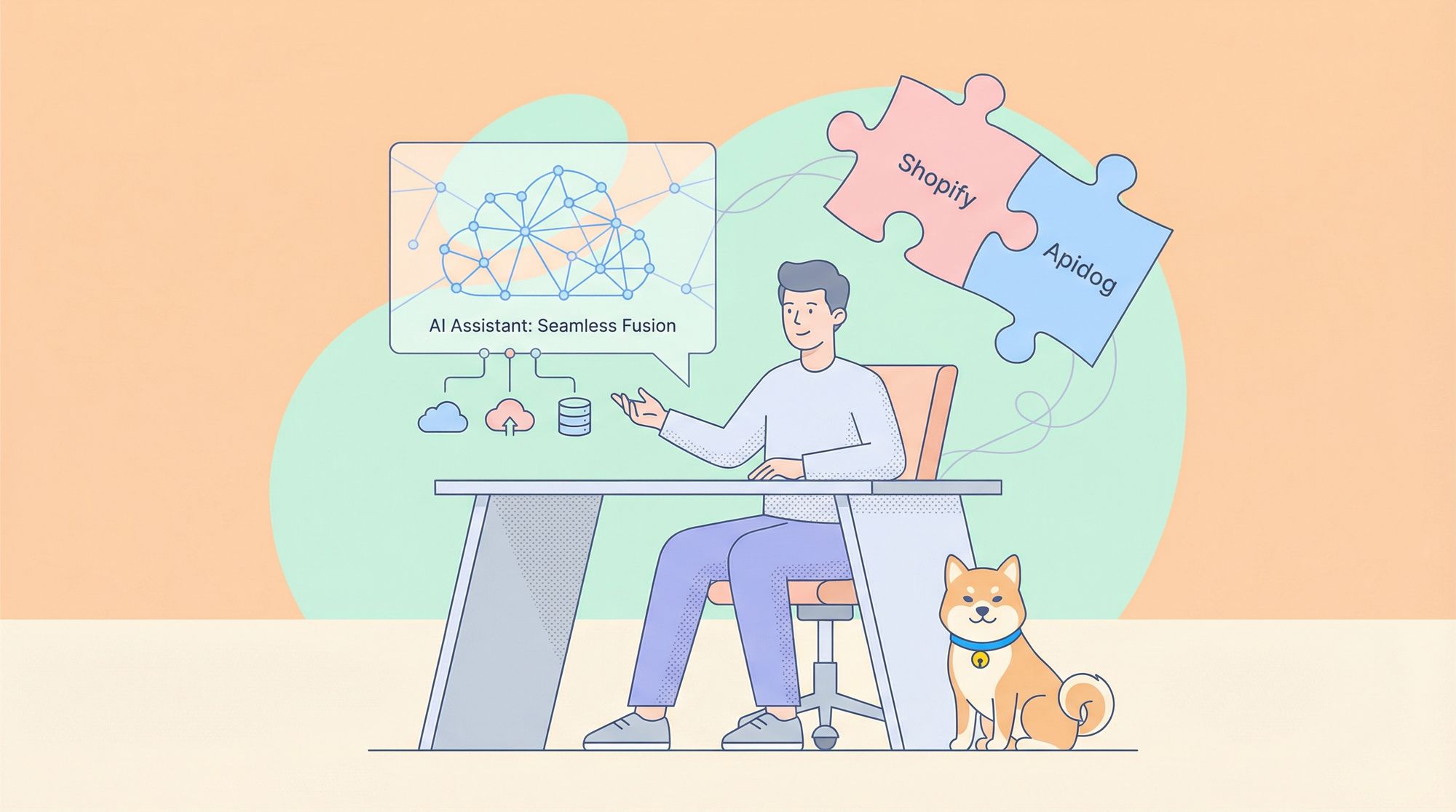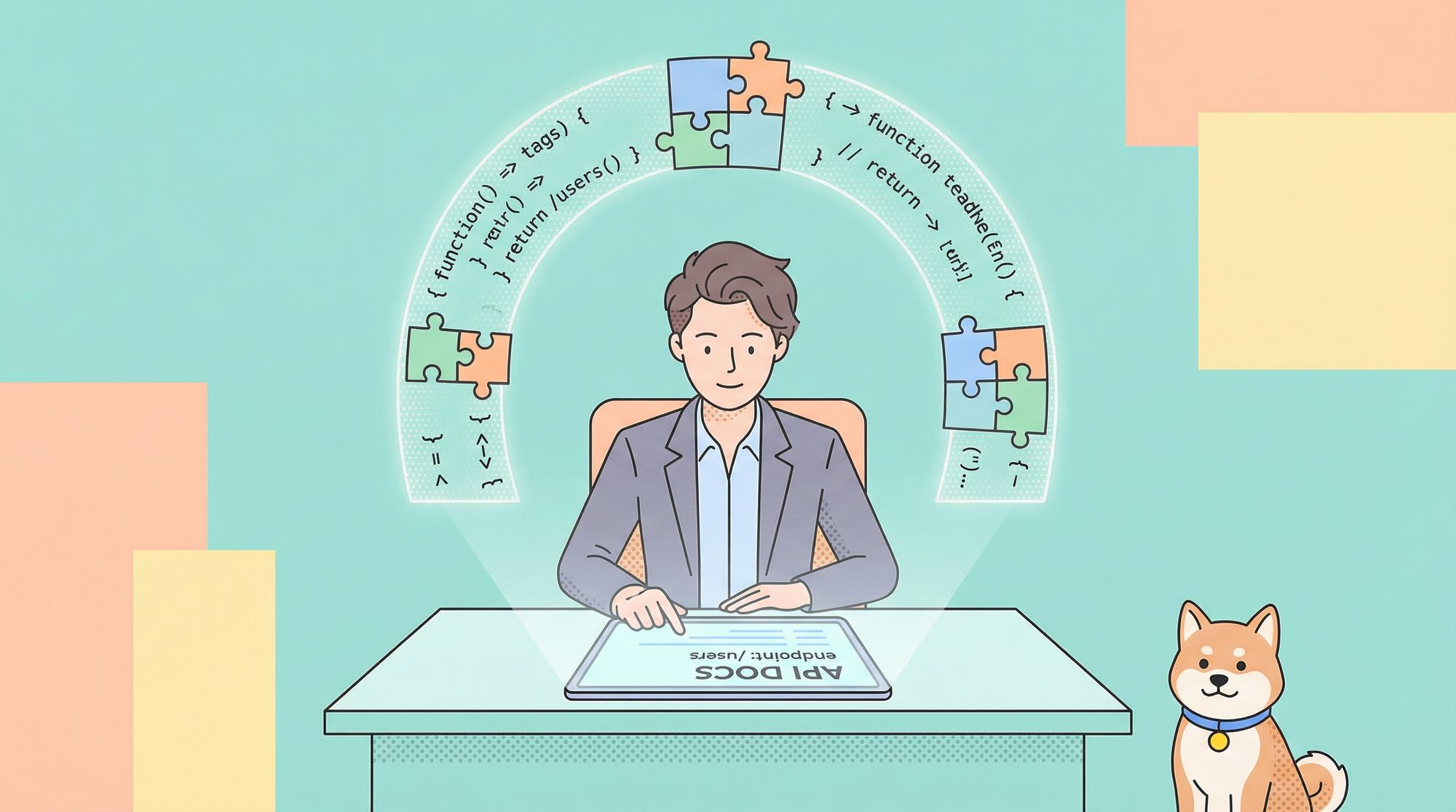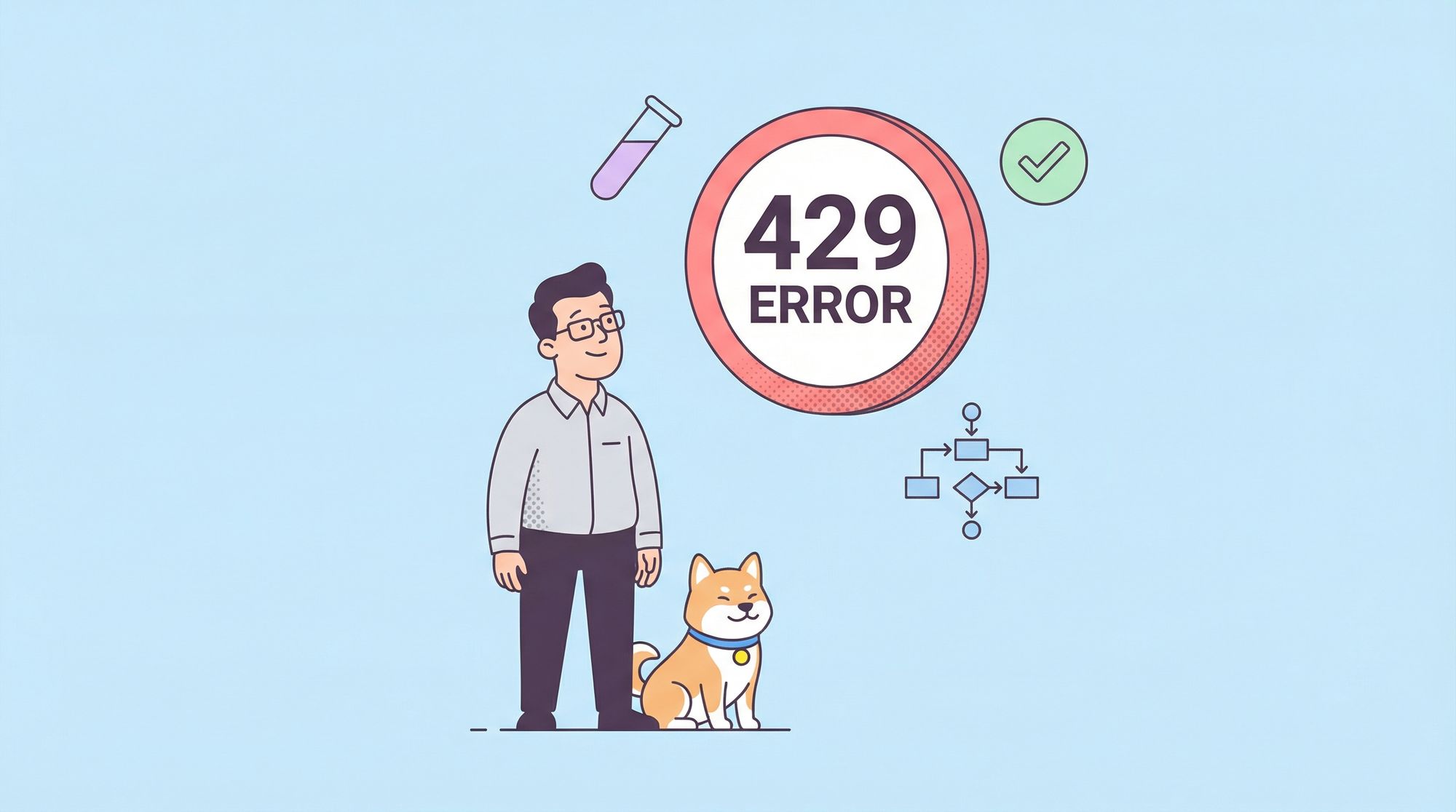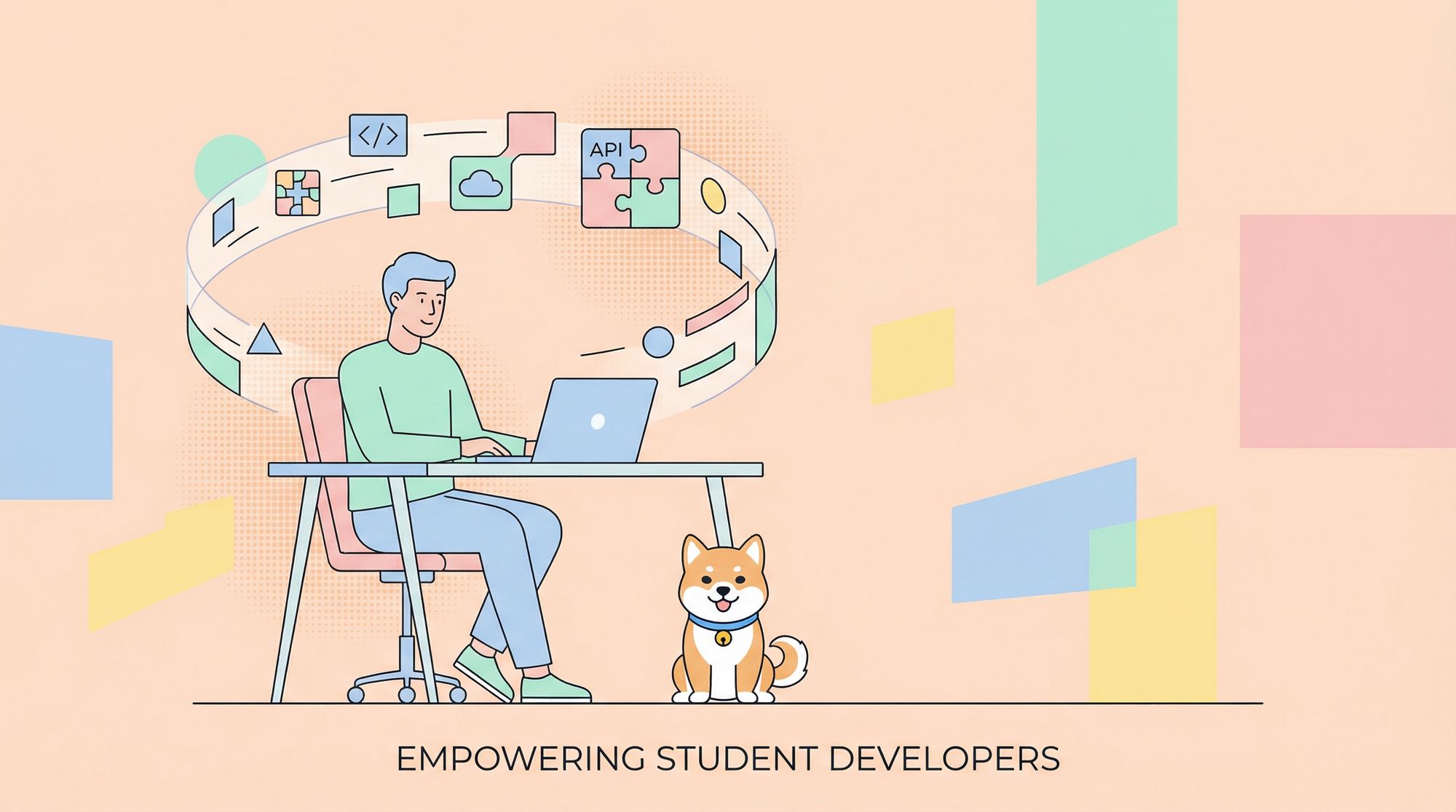In the rapidly evolving landscape of software development, Model Context Protocol (MCP) servers have emerged as crucial tools that bridge AI assistants with specialized knowledge sources. These servers enable AI tools to access structured information about APIs, documentation, and schemas, making development more efficient and accurate.
MCP servers fundamentally transform development by providing AI assistants with direct access to specifications and documentation. Instead of constantly switching between documentation and code, developers can leverage AI to generate code, understand API structures, and troubleshoot issues—all while maintaining perfect alignment with actual API specifications.
The Shopify Dev MCP Server exemplifies this approach by connecting AI assistants to Shopify's extensive e-commerce API ecosystem. This server allows AI tools to search documentation and introspect GraphQL schemas directly, making Shopify's complex APIs more accessible to developers building integrations, apps, and customizations.
Key benefits of using MCP servers include:
- Reduced context switching between documentation and code
- Improved accuracy with generated code that aligns with API specifications
- Faster development through automatic generation of common patterns
- Better understanding of complex API concepts explained in plain language
- Consistent implementation that remains aligned with documentation
For teams working with multiple APIs, combining different MCP servers creates a powerful development environment where AI assistants have comprehensive knowledge across various API ecosystems.
Pro Tip: While Shopify Dev MCP Server offers excellent capabilities for Shopify-specific development, pairing it with Apidog MCP Server creates a powerful unified environment for all your API needs. Apidog MCP Server provides AI access to your custom API specifications, enabling seamless development across both Shopify and your own APIs. This combination dramatically reduces context switching and ensures consistent implementation across your entire API ecosystem. For the most comprehensive AI-assisted development experience, set up both servers using our integration guide below.
Exploring Shopify Dev MCP Server Capabilities
The Shopify Dev MCP Server provides specialized tools that enhance AI understanding of Shopify's API landscape:
Documentation Search (search_dev_docs): Allows AI assistants to search through Shopify's extensive developer documentation without manual navigation.
GraphQL Schema Introspection (introspect_admin_schema): Enables AI to explore Shopify's Admin API GraphQL schema, including queries, mutations, types, and fields.
Specialized Prompts: Includes tools like shopify_admin_graphql to help write effective GraphQL operations for the Shopify Admin API.
These capabilities make the server invaluable for developers building Shopify integrations, apps, or customizations by reducing the learning curve and accelerating development.
Setting Up Shopify Dev MCP Server
Implementing the Shopify Dev MCP Server requires minimal configuration:
Prerequisites
- Node.js (version 14 or higher)
- An AI tool supporting the Model Context Protocol (Cursor, Claude Desktop, etc.)
Installation
Run the server directly using npx:
npx -y @shopify/dev-mcp@latestConfiguration for Cursor
- Open Cursor Settings and select "MCP"
- Add a new global MCP server with this configuration:
{
"mcpServers": {
"shopify-dev-mcp": {
"command": "npx",
"args": ["-y", "@shopify/dev-mcp@latest"]
}
}
}For Windows users, use this alternative:
{
"mcpServers": {
"shopify-dev-mcp": {
"command": "cmd",
"args": ["/k", "npx", "-y", "@shopify/dev-mcp@latest"]
}
}
}Verification
Test the setup by asking your AI assistant about Shopify's API:
"Can you search the Shopify documentation for information about the Product resource?"Integrating with Apidog MCP Server
Combining Shopify Dev MCP Server with the Apidog MCP Server creates a unified environment where AI assistants can access both Shopify's API ecosystem and your custom API specifications.
Setting Up Apidog MCP Server
Prerequisites:
- Node.js (version 18 or higher)
- An Apidog account with access to your API project
- Your Apidog API access token and project ID
Steps:
Generate an Apidog Access Token:
- Log into Apidog account → Account Settings → API Access Token
- Create and copy a new token

Locate Your Apidog Project ID:
- Open your project → Settings → Basic Settings
- Copy the Project ID
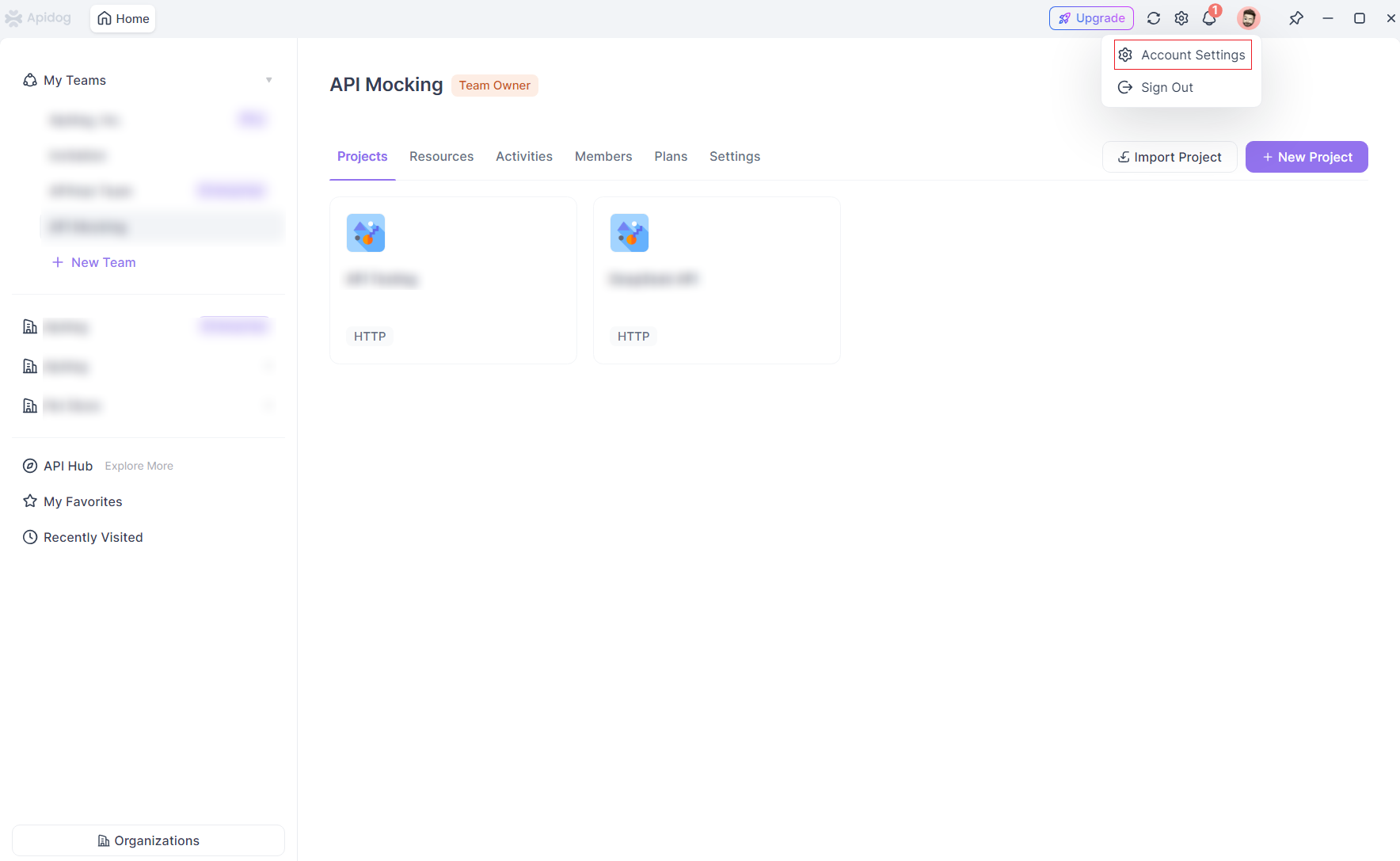
Configure Apidog MCP Servers in Cursor:
{
"mcpServers": {
"API specification": {
"command": "npx",
"args": [
"-y",
"apidog-mcp-server@latest",
"--project=<project-id>"
],
"env": {
"APIDOG_ACCESS_TOKEN": "<access-token>"
}
}
}
}Replace <project-id> and <access-token> with your actual values.

Verification:
Test the integration by asking about both APIs:
"Search Shopify documentation for product variants"
"Fetch my API specification via Apidog MCP and list available endpoints"Practical Applications of the Integrated MCP Servers
The combination of Shopify Dev MCP and Apidog MCP servers enables powerful workflows:
Building E-commerce Integrations
Develop applications connecting Shopify with custom backend services:
- Generate Shopify API clients that follow Shopify's patterns
- Implement custom endpoints that process Shopify data
- Create data transformation functions between systems
Example prompt:
"Using the Shopify Admin API, generate a TypeScript client for fetching product information and storing it in our database according to our API specification"Streamlining Documentation and Testing
Enhance quality assurance across integrated systems:
- Generate test suites that verify correct handling of data between systems
- Create documentation examples showing integration patterns
- Validate API compatibility between Shopify and custom services
Example prompt:
"Create tests for our order processing endpoint that verify it correctly handles Shopify webhook data according to our API specification"Real-World Scenarios
Building a Custom Shopify App
Developers can:
- Generate Shopify API client code
- Create custom API endpoints following team patterns
- Implement data synchronization between systems
- Generate comprehensive integration tests
Migrating Between API Versions
When APIs evolve, developers can:
- Identify changes between versions
- Update integration code for new requirements
- Generate migration scripts for data transformation
- Create compatibility tests
Troubleshooting Integration Issues
When problems arise:
- Get AI explanations based on both API specifications
- Generate diagnostic code to validate data structures
- Create fixes maintaining compatibility across systems
- Document solutions for future reference
Conclusion: Transforming API Development with Integrated MCP Servers
The integration of Shopify Dev MCP Server with Apidog MCP Server represents a significant advancement in API development methodology. By creating a unified environment where AI assistants can access both Shopify's extensive API ecosystem and your custom API specifications, this combination addresses the persistent challenges of working with multiple API systems.
This integrated approach delivers tangible benefits throughout the development lifecycle. Developers spend less time switching between documentation sources and more time creating value. Code generation maintains perfect alignment with both Shopify's requirements and your custom API specifications. Testing becomes more comprehensive, covering complex interactions between different systems.
For e-commerce development teams, this integration transforms how Shopify integrations are built and maintained. The combination of Shopify's commerce capabilities with custom backend services becomes more manageable, with AI assistance ensuring consistency across the entire application architecture.
By embracing this integrated approach, development teams position themselves at the forefront of modern API development practices—ready to deliver better, more consistent integrations in less time. This approach doesn't just improve efficiency; it fundamentally transforms how developers interact with API ecosystems, creating new possibilities for innovation and quality.
The future of API development lies in this intelligent integration of multiple knowledge sources—and with Shopify Dev MCP Server and Apidog MCP Server working together, that future is available today.
